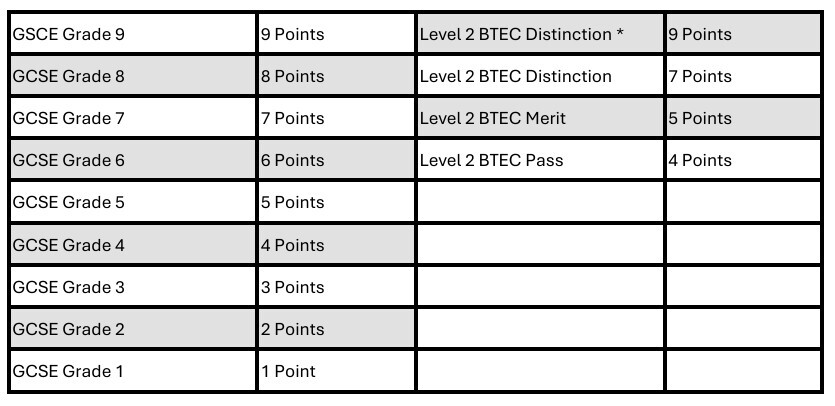Careers Guidance in the Sixth Form
This is the traditional academic route of A level subjects. Most of our students following this route will go to university.
The A levels are two year courses, with examinations that will be completed at the end of Year 13.
In the application form, students must select their choice of 3 subjects and also a reserve subject. This free choice will hopefully enable more students to study the subjects of their choice. However subjects will only be able to run if there are sufficient numbers.
Computer Science will be a new offering this academic year, but it is dependent on staff recruitment.
There may be an option to study 4 A Levels however this is a challenging academic route and is usually only taken by students who have attained grade 8 and 9 in their GCSEs.
Please note, students wishing to study Further Mathematics must also select Mathematics.
For further in depth information about subject curricula, please click here
For students who would like to study 3 A Levels, students will require a total of 38 points across their best 8 GCSEs.
For students who would like to study the AAQ in Child Development and 2 other A levels, students will require a total of 34 points across their best 8 GCSEs.
Students must also pass GCSE Mathematics and English Language/or Literature at a minimum of grade 4, although for progression to university we recommend grade 5 in these subjects, the following link explains this further.
How important are your GCSE grades? - The Uni Guide
Students will also need to meet the specific entrance requirements for each subject, as detailed in the course links above.

It can be bewildering trying to choose A Levels when you are not sure what you want to do after you finish Sixth Form. The best advice comes from The Russell Group (representing leading UK universities).
Russell Group
We understand that you have differing career aspirations, interests and strengths, and we aim to ensure that you have an individualised programme which allows you to achieve your full potential.
It is important to realise that your GCSE results will indicate the most appropriate pathway for you, and your A level choices need to be considered carefully. A few subjects can be taken without previous study at GCSE, and some will be brand new to you. You should check the specific requirements as detailed in the prospectus.
Choosing courses is a really important decision, as your future career could depend on it. You should aim to thoroughly research your subject choices when choosing your courses. Choose subjects that you feel enthusiastic about and inspire you. Think carefully about the guidance from your teachers, tutors and family.
You should choose subjects that complement each other effectively, in order to showcase your talents accordingly. For example, students should usually take more than one Science subject if they wish to continue this at university. Students who wish to pursue English should choose a complementary essay subject to highlight their skills, such as History, Religious Studies or a Language. Economics and Physics complement Mathematics very well too. Some useful advice on this can be found here
Updated: October 2025